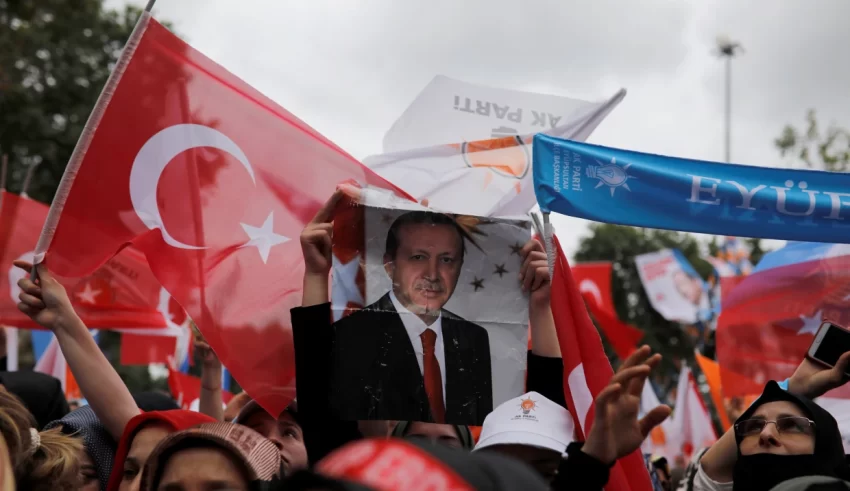
Turkey is now in election season. The upcoming elections have been set for May 14, with this possibly being the most difficult for Turkish President Tayyip Erdogan. Turkey at the moment is facing one of the worst periods of its economy with inflation to make things difficult for the average household. Nevertheless, it hasn’t always been that way. When Erdogan first took national office twenty years ago as the country’s prime minister, things were looking up. The Turkish economy was thriving, and unemployment rates were falling. This year’s celebrations of the centennial of the Turkish republic were supposed to be a joyful and praiseful to the Turkish success story. But instead, the “New Turkey” Erdogan sought to establish increasingly slid into authoritarianism.
As elections fast approaching, many Turks are disappointed with President Erdogan’s party AKP, citing mistrust of the government, a crackdown on free speech, deteriorating business opportunities and inflation as part of the reason. Another factor, however, is expected to play a role in shaping the upcoming elections. Turkey has always been a transit country for migrant flows wishing to move to Europe. After the events of the Arab Spring which quickly turned into the Arab Winter, the number of refugees in Turkey skyrocketed. According to Human Rights Watch, Turkey hosts the highest number of refugees in the world, with an estimated 3.6 million Syrian refugees in the country, in addition to asylum seekers from other countries.
Same as inflation, immigration has become a sensitive issue for Turkish elections. Public opinion in Turkey considers that the country in this difficult economic situation it is in, with the Turkish lira sliding, cannot support the large number of refugees who are in the country mainly from Syria and Afghanistan. Since 2022 Turkey has increased deportation flights of Afghans to Afghanistan despite the United Nations High Commissioner for Refugees’ call on all governments not to forcibly return Afghans, due to the risk they may face under the Talibans’ governance of the country. At the same time, a few months before the presidential and parliamentary elections on May 14, President Erdogan aims to send home one million Syrian migrants.
Since Syrians make up the lion’s share of the refugees, what has been most promising for Turkey is to turn to Syria and Assad in order to address the issue. Erdogan hopes he can convince voters that dialogue with Assad will be beneficial for Turkey and will lead to the return of most Syrian refugees in case the Syrian leader can guarantee their safety. Syria, as Reuters reported last month, has opposed the idea of a leaders’ summit with Turkey, as they do not wish to bolster Erdogan’s electoral power.
The damage caused by the refugee issue to Erdogan is, on the other hand, advantageous for the far-right Turkish parties. The Victory Party, in an attempt to take advantage of the situation and win votes, promises to deport Syrian refugees within a year of assuming office. The far-right party has launched a fundraising campaign promising to spend the cash on bus tickets it says will be used to deport Syrian refugees. Several other Turkish opposition parties have also promised to return Syrian refugees, including Turkey’s leading opposition party, the Republican People’s Party (CHP), who has vowed to send all Syrians home within two years if elected. The emergence of the refugee issue as a factor in the elections has placed refugees in the spotlight not only of the parties but also of far-right groups. Organizations supporting migrants in Turkey say they face increasing hostility in the run up to the 2023 elections.
Refugees are being used as a “campaign issue” in the run up to elections. The prohibitive cost of refugee care for Turkey to some extent may explain why all parties are more or less willing to move refugees away from Turkey. This, however, should not allow Turkey and whichever party ultimately prevails in the elections to act as it wishes. Refugees enjoy international protection under the Geneva Convention. Turkey’s actions must be in line with the international community and prevent the exploitation of refugees for the benefit of political power.
By The European Institute for International Law and International Relations.















